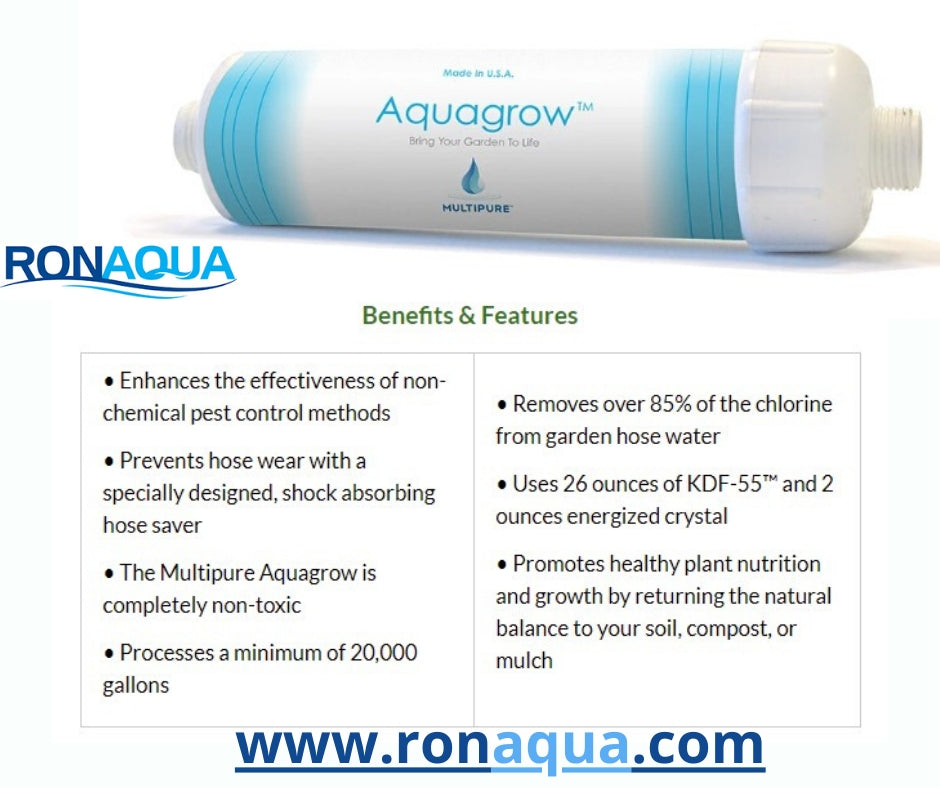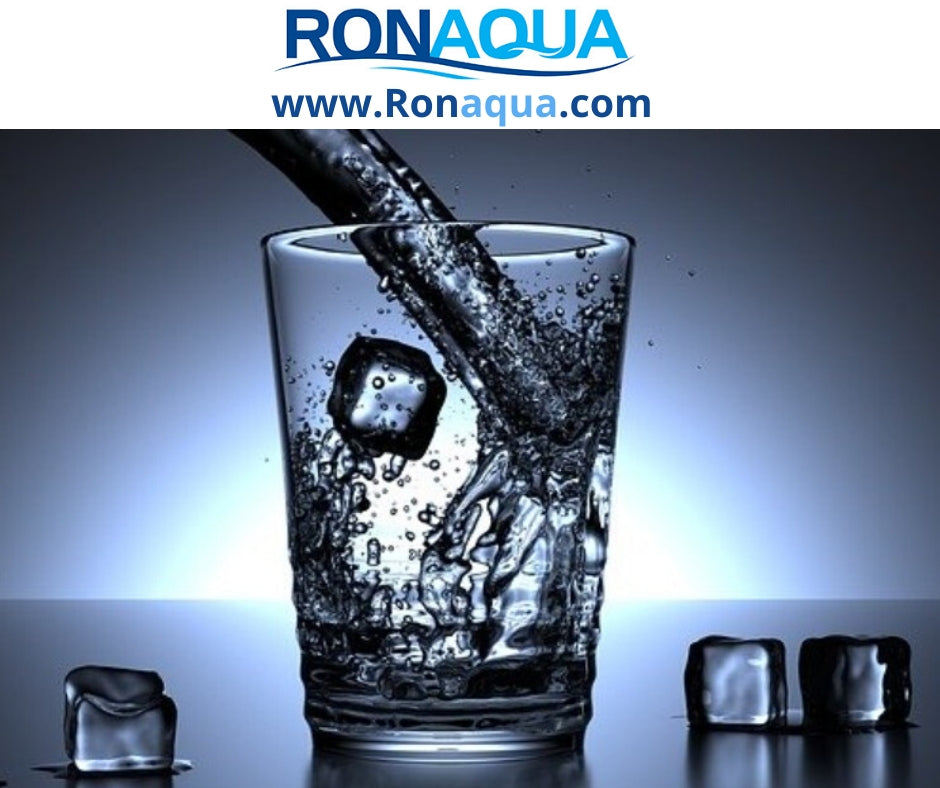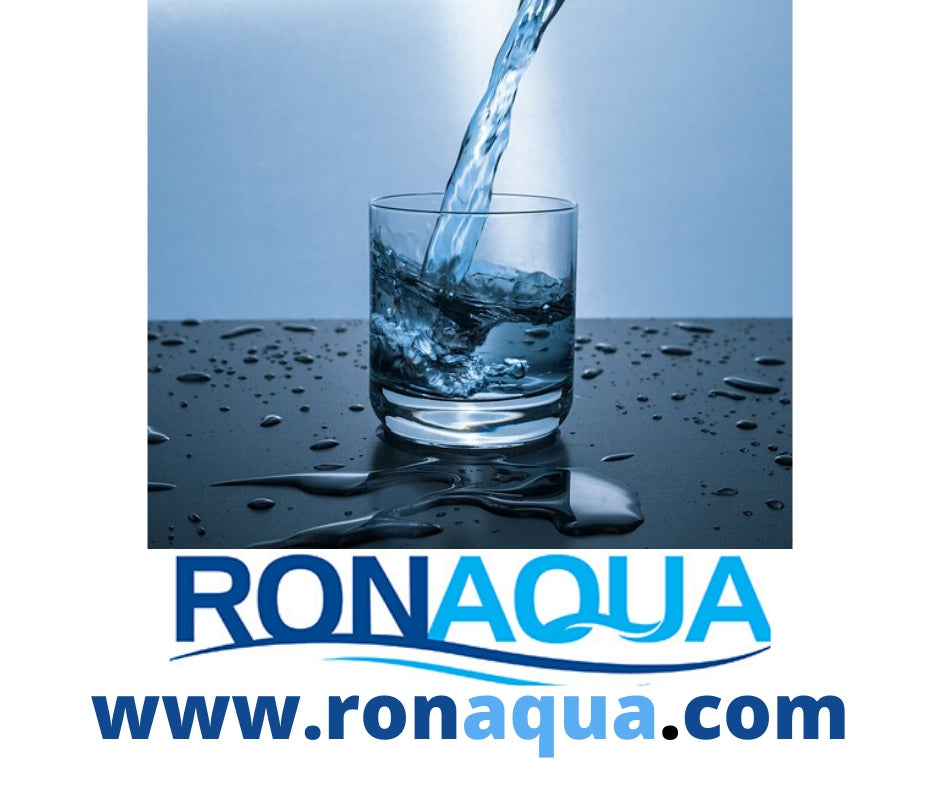Blog

The Best Time to Start Your Garden and One Great Tool
Guess what everyone! The very best time to start your garden is right now! And, while majority of us are still quarantined for the most part, why not “dig” a little deeper into your soon to be gardens and plant crops that will thrive and grow and also save you some cash at the same time. I mean unless you are working from home all day long, many of us have a bit of spare time to not only get some much needed air, but can also reap the benefits of producing some edible foods that you might otherwise have to purchase at the store!
Here are 16 crops that you can plant right now – Early Spring!
- Beans
- Broccoli
- Cabbage
- Cauliflower
- Chinese cabbage
- Collards
- Endive
- Kale
- Kohlrabi
- Leeks
- Lettuce
- Mustard
- Peas
- Radicchio
- Spinach
- Swiss chard
With the above being said Ronaqua has this cool tool called Aquagrow Multipure.
So what is Aquagrow Multipure?
With the new Aquagrow Garden Filter, Multipure provides the benefits of cleaner, more healthful water to your yard and garden. By connecting the remarkable Aquagrow inline filter to your existing garden hose, you can provide your lawn, your garden, and any of your outdoor plant life with beneficial dechlorinated water. The Aquagrow provides the water that your plants need to truly thrive. So, not only can you plant your crops, but you can also water your plants and lawn with dechlorinated water!
During these trying times stay productive. It’s the perfect timing that you may otherwise not normally have. Get some much needed air, Get some much needed exercise while creating a stunning garden, lawn, plants and crops! Just do it like Nike!
- Anzhela Staraya
- Tags: Aquagrow clean water Crops Gardening News ronaqua ronaquafilters

Filtered Water Versus Tap Water: “Tap” Into Filtered Water
It’s no secret that tap water has improved a lot in recent years. However, there are still chemicals in regular tap water that we all need to know about. Now, we all know that drinking water promotes a vast array of health benefits, but what good is it if this same tap water that we are drinking day after day, and cup after cup contains chemicals that can actually harm us.
Did you know that much of our plumbing infrastructure in the United States contains lead piping, lead service lines, or lead plumbing components, many of which are over 50 years old? According to a nationwide study from the Center for Disease Control (CDC), “Lead leaches into tap water through the corrosion of plumbing” (https://www.cdc.gov/mmwr/preview/mmwrhtml/su6104a1.htm) as out-of-date lead pipes and components start to break down. Therefore, if we drink a lot of tap water over time this contaminated drinking water can affect fertility, liver function and more.
Flouride is another concern, which should not be taken lightly. Once again when drinking a lot of tap water over time our thyroids could be damaged which, affects our thyroid hormone production. Flouride can also damage our brain function as it is a neurotoxin. A high fluoride content in water correlates with an up to seven-point decrease in IQ!
Last but not least we have chlorine and chloramine. Did you know that the government sanitizes water with chlorine? Large scale studies have linked chlorinated water to bladder and colorectal cancer, therefore, chloramine came into the picture, but not without its disruptions, as chloramine corrodes lead, thereby combining old lead pipes/plumbing with corroded lead caused by the chloramine and you have even more lead in your water than you had before not to mention that chloramine doesn’t kill pathogens nearly as well as chlorine does. Its byproducts are potential carcinogens, and you can’t remove chloramine or its byproducts through boiling or distilling.
Now Let’s “Tap” Into Filtered Water
After reading the above it’s no wonder that people are safely drinking filtered water. First of all the simple peace of mind knowing that our water is free from contamination alone would make anyone want to switch. However there are a lot more benefits to drinking filtered water then we know about.
Here are just a few:
- Improved Digestion
- Removes Chlorine
- Reduces Acid Reflux
- Has Anti-Oxidant Properties
- Reduces Cardio Stress
- Reduces Lime Scale
- Protects your Teeth
- Saves Money on Buying Bottled Water
- Saves the Planet by not Using Plastic
Join us in our quest to make ourselves the healthiest that we can be, while saving money and saving the planet all at the same time. This is a no brainer, win-win for all!
Pure Water in Every Drop!
- Anzhela Staraya
- Tags: Chloramine Chlorine contamination filtered water Lead tap vs. filtered water tap water

Staying Healthy and Safe During These Trying Times with Ronaqua!
These trying times prompts us to practice caution to help keep us safe and healthy!- Anzhela Staraya
- Tags: caution Coronavirus drinking water Healthy Purified water Safe

Why is drinking water so important?
Drinking water helps nearly every part of the human body function. Our bodies are made up of two-thirds of water. You can imagine that water is a basic human need. Each person on our planet requires water for drinking, cooking and cleaning. Water plays a big role in the lives - and death of people around the world. Polluted water causes 1.8 million deaths every year of diarrheal diseases like cholera. It’s a shame that millions are sickened by a water-related ailment which is easily preventable.
Next to air, water is necessary for human existence. The cells in our body depend on the water we drink to function properly. Drinking clean, safe water increases our energy, aids body in digestion, and lubricates our joints. Not only does it naturally help our bodies work, it brings forth a feeling of overall well-being. Once we realize that nearly 70% of the body's weight is made up of water, we will understand that the water we consume is essential for a life worth living.
Did you know...
- 20-30% of our work performance is based on our water intake
- By the time a person feels thirsty, his or her body has lost over 1 percent of its total water amount
- About 25,700 liters (6,800 gallons) of water is required to grow a day's food for a family of four.
- A person can live about a month without food, but only about a week without water. If a human does not absorb enough water dehydration is the result.
- If all the world's water were fit into a gallon jug, the fresh water available for us to use would equal only about one tablespoon
- A small drip from a faucet can waste as much as 75 liters of water a day.
- Human bones are 25% water.
- Most of the world's people must walk at least 3 hours to fetch water.
- Bottled water can be up to 1000 times more expensive than tap water and it may not be as safe.
- For every six ounces of caffeine or alcohol you consume, an additional 10 to 12 oz. of water is needed to rehydrate you.
- Doctors recommend we drink 6-8 glasses of water per day for optimum health, but this is often difficult when you don't like the taste or odor of your water or are concerned about the quality of your drinking water.
- Rostislav Grutman
What’s the truth about Bottled Water?
Although we may think bottled water is our safest option - more than 25% of bottled water comes from a municipal supply. Most people are surprised to know that they’re drinking glorified tap water; and most labels on bottles don’t tell you where the water is even coming from.
The truth is, bottled water contains an excess amount of minerals which are added to the water supply. As our body needs only a small quantity of these minerals, bottled water can do more harm than good. In addition, plastic bottles contain Polyethylene Terephthalate (PET) and Bisphenol A (BPA).
Some effects of these harmful plastic hardeners are and not limited to
- cancer
- neurological difficulties
- early puberty in girls
- reduced fertility in women
- premature labor
- defects in newborn babies
Plastic bottled also contain Polyvinyl Chloride (PVC), and Phthalates. These chemicals found in plastic are endocrine-disrupting additives that have been linked to a wide range of developmental and reproductive effects, including
- reduced sperm count
- testicular abnormality and tumors
- Gender development issues.
The FDA does not regulate phthalates or class them as a health hazard due to the supposedly minute amounts present in plastic bottles.
- Rostislav Grutman